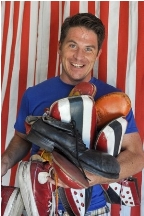
Rebecca Novick
Un-business Model
Posted by May 17, 2011

Rebecca Novick
Asked to write about new business models I find myself instead thinking of un-business models. How can we move the business from the center where in fact the art belongs? Not move the money, which is always necessary to some degree, but the business, the unholy preoccupation with systems and structures and buildings and the perpetual employment of administrators.
I have the honor to be involved in a project that is striving to do this, a big, messy, ambitious collaboration with spiritual aims and practical struggles, led by a playwright and shepherded by his family of collaborators. Soulographie: Our Genocides is an international project organized by playwright Erik Ehn to bring together the 17 plays he wrote in the last decade about various genocides. Teams in ten cities are producing one or more of the plays locally, in preparation for performances of the full cycle at La Mama in New York City in November 2012.
Read More













